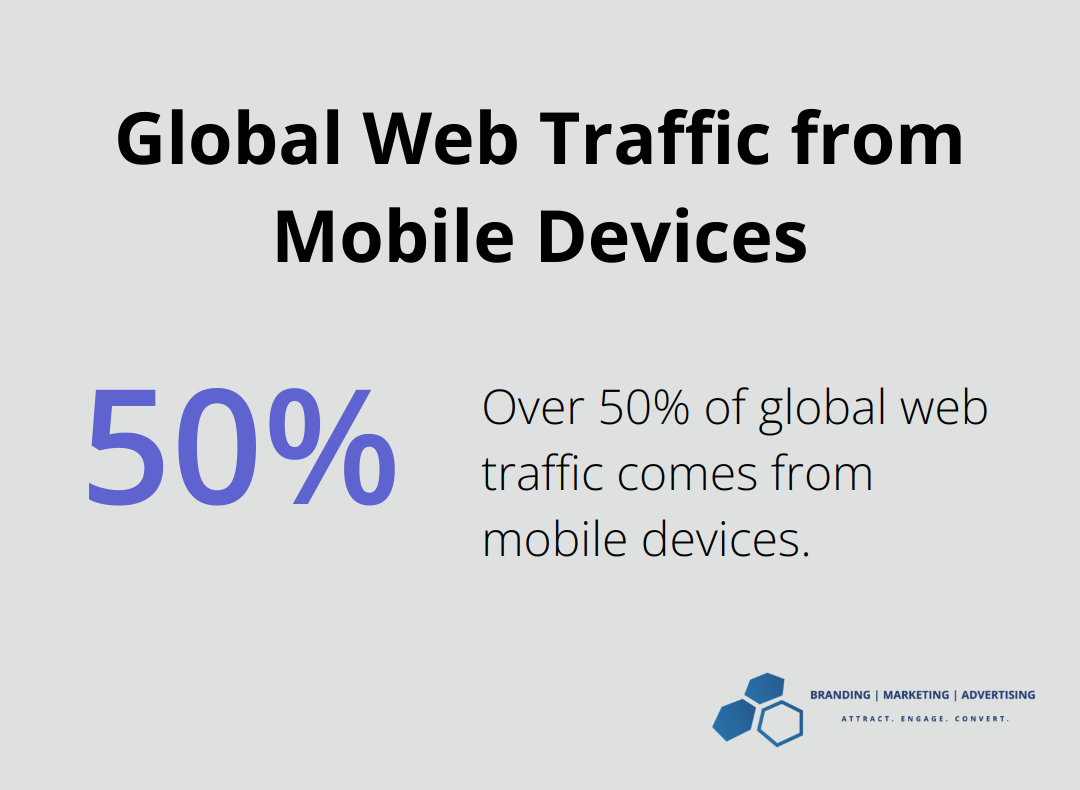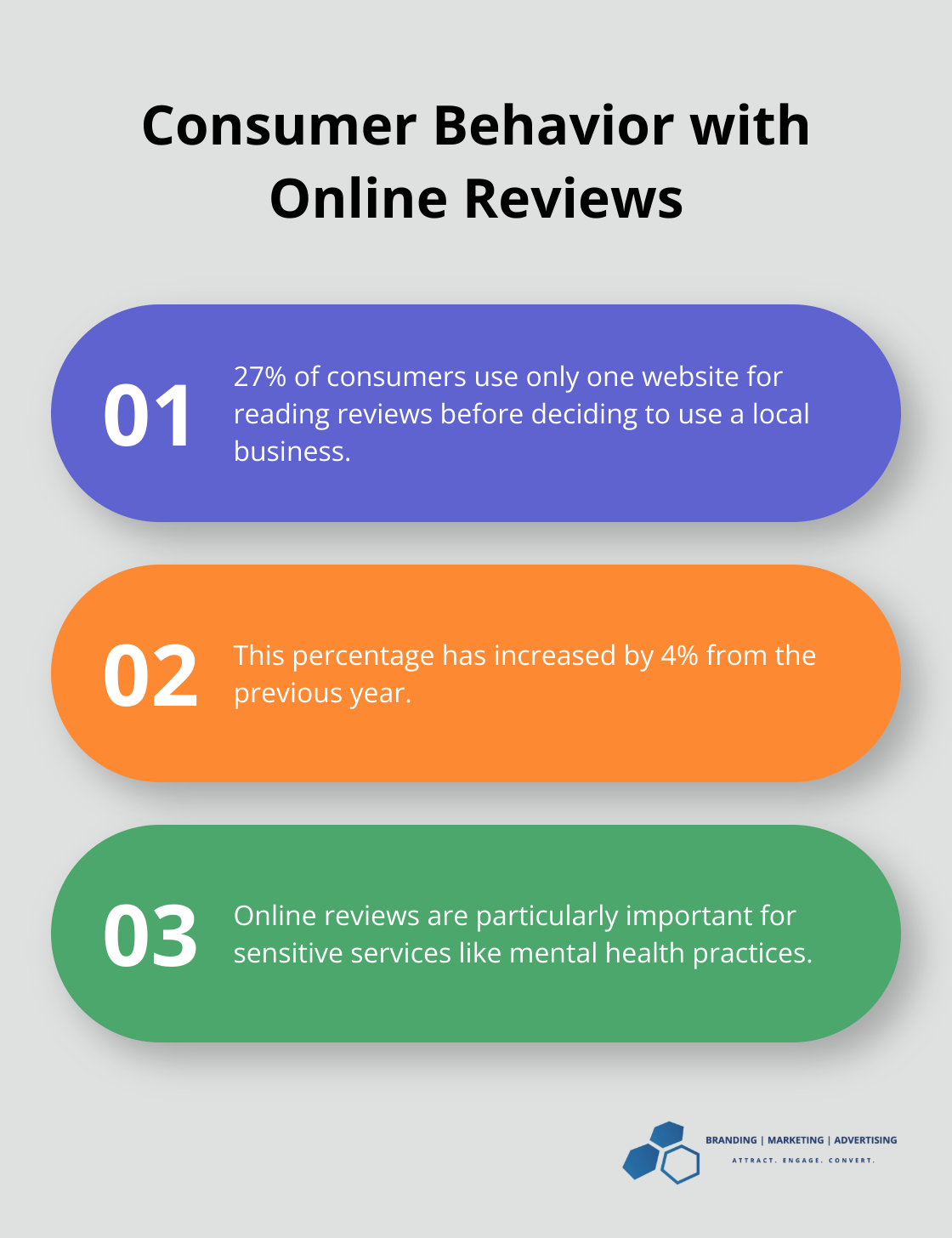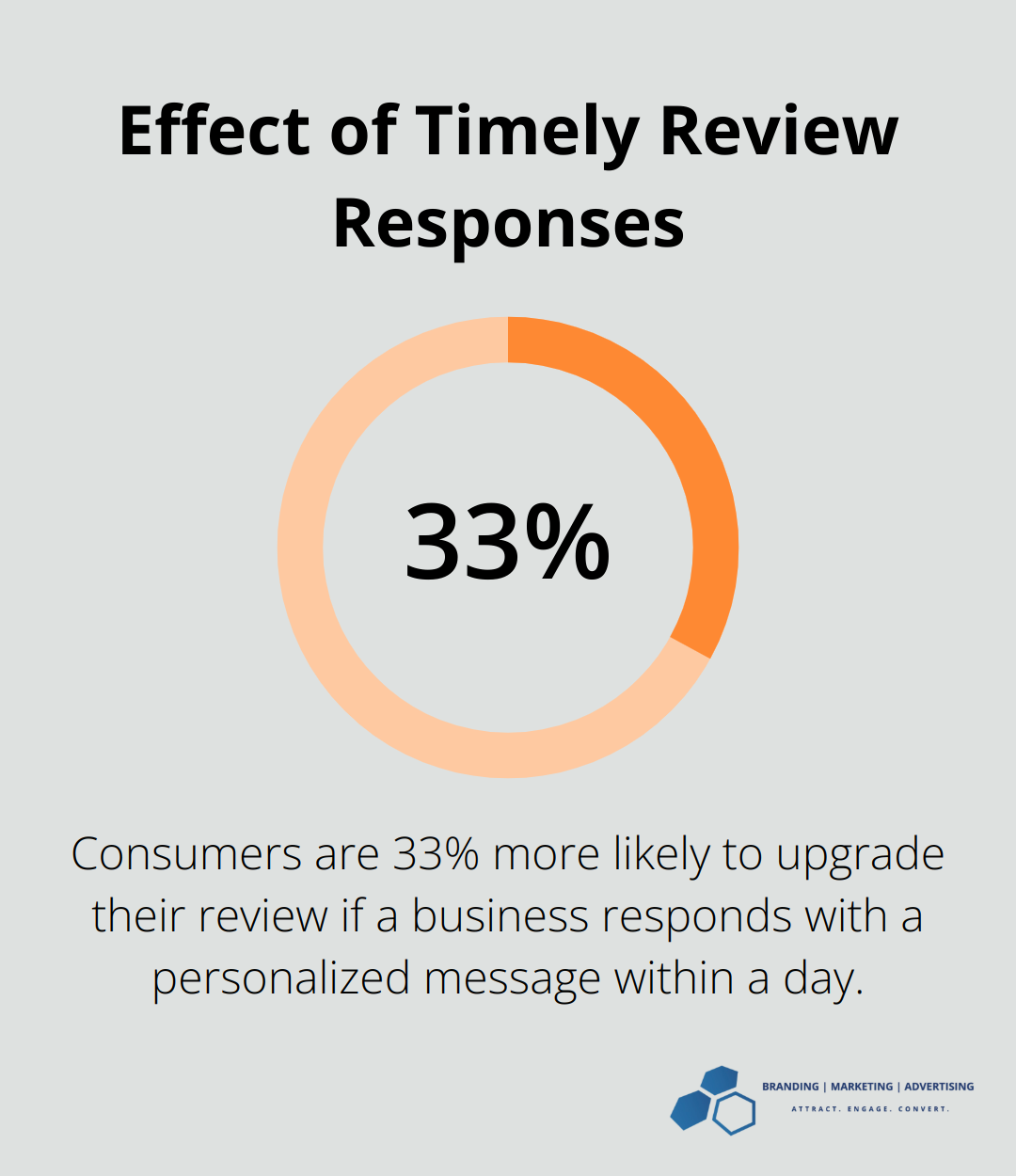Boosting Your Mental Health Practice’s Online Visibility
At Branding | Marketing | Advertising, we understand the importance of mental health SEO for practitioners looking to expand their reach.
In today’s digital landscape, having a strong online presence is essential for mental health professionals to connect with those in need of support.
This blog post will guide you through effective strategies to boost your practice’s visibility online, helping you make a bigger impact in your community.
How to Optimize Your Website for Mental Health Searches
At Branding | Marketing | Advertising, we know that website optimization for mental health searches plays a key role in attracting potential clients. Here’s how you can improve your online visibility and connect with those seeking mental health support.
Conduct Thorough Keyword Research
Start by identifying the terms your potential clients use when searching for mental health services. Optimize each page and post for specific keyword phrases using semantic search language. For example, for an anxiety counseling practice, focus on curating content around related terms and phrases that potential clients might use in their searches.
Create Valuable, SEO-Friendly Content
After identifying your target keywords, create informative content that addresses common mental health concerns. This includes blog posts about coping strategies, explanations of different therapy approaches, or FAQs about seeking mental health treatment.
Structure your content well with clear headings, short paragraphs, and relevant images. Use your target keywords naturally throughout the text (including titles, headings, and meta descriptions).
Improve Website Performance
A fast, mobile-friendly website enhances both user experience and search engine rankings. Google’s PageSpeed Insights tool helps you identify areas for improvement. Quick wins include optimizing images, minifying CSS and JavaScript, and leveraging browser caching.
Mobile responsiveness is particularly important, as over 50% of global web traffic comes from mobile devices. Ensure your website looks and functions well on all screen sizes.

Implement Schema Markup
Schema markup is a form of structured data that, when added to a website, allows search engines to better read and understand the content on your web pages. For mental health practices, implementing schema for local businesses and health care services can be particularly beneficial.
This can significantly boost your visibility in local search results.
Monitor and Adjust Your Strategy
SEO is an ongoing process that requires continuous attention. Use tools like Google Analytics to track your website’s performance and identify areas for improvement. Try to adjust your content strategy based on what resonates most with your audience (as indicated by metrics such as page views, time on page, and bounce rate).
As you implement these strategies, you’ll notice a gradual improvement in your website’s visibility for mental health searches. The next step is to complement your SEO efforts with a strong social media presence, which we’ll explore in the following section.
How Social Media Boosts Mental Health Awareness
Social media platforms offer powerful tools for mental health professionals to connect with their audience, share valuable resources, and increase visibility. These platforms provide unique opportunities to reach and engage with potential clients.
Select the Right Platforms
Not all social media platforms are equal when it comes to mental health awareness. Recent studies have shown that social media can be effective for mental health awareness campaigns targeting young people. Facebook’s large user base and robust community features make it ideal for sharing longer-form content and hosting support groups. Instagram’s visual nature lends itself well to sharing inspirational quotes, infographics about mental health topics, and behind-the-scenes glimpses of your practice.
LinkedIn is another platform worth considering, especially if you aim to network with other professionals or attract corporate clients for employee assistance programs. Twitter can be useful for sharing quick tips and participating in mental health conversations, particularly during awareness events or trending topics.
Create Valuable Content
The key to social media success is to provide value to your audience. Share practical mental health tips, coping strategies, and resources that your followers can apply in their daily lives. For example, you might post a series of breathing exercises for anxiety relief or share a graphic explaining the signs of depression.
Mix up your content types to keep your feed engaging. This could include short video clips explaining therapy concepts, infographics summarizing research findings, or text posts posing thought-provoking questions about mental health.
Engage with Your Audience
Social media is a two-way street. Respond promptly to comments and messages, showing that you’re attentive and care about your audience’s concerns. This builds trust and encourages more engagement.
Consider hosting live Q&A sessions or “Ask Me Anything” events where followers can get real-time answers to their mental health questions. These interactive sessions not only provide value but also showcase your expertise and approachability.
Leverage Hashtags and Trends
Using relevant hashtags can significantly increase your posts’ visibility. Research popular mental health hashtags in your area and incorporate them into your posts. For example, #MentalHealthAwareness, #TherapyTips, or location-specific tags like #NYCTherapist can help you reach a wider audience.
Stay aware of mental health awareness days and months (such as Mental Health Awareness Month in May or World Mental Health Day on October 10th). Plan content around these events to join larger conversations and increase your visibility.
Consistency is key in social media marketing. Develop a content calendar to ensure regular posting, and use scheduling tools to maintain a steady presence even during busy periods.
As you implement these social media strategies, you’ll notice an increase in engagement and visibility for your mental health practice. However, your online reputation extends beyond social media. In the next section, we’ll explore how to build and maintain a strong online reputation to further enhance your practice’s credibility and attract local customers.
Building Trust Through Online Reputation
At Branding | Marketing | Advertising, we understand the critical role of a strong online reputation for mental health practices. A positive digital presence attracts new clients and solidifies trust with existing ones. Let’s explore effective strategies to enhance your practice’s online reputation.
Leverage Client Reviews
Client reviews provide powerful social proof for your practice. Recent research shows that 27% of consumers use only one website for reading reviews before deciding to use a local business, which is up 4% from the previous year. This percentage likely increases for mental health services due to their sensitive nature.

Implement a follow-up system to encourage reviews. Send a friendly email to clients after their third or fourth session, asking if they would share their experience online. Always comply with HIPAA regulations and stress that all reviews should remain voluntary and anonymous.
Respond to Reviews Professionally
Every review warrants a response, regardless of its nature. For positive reviews, a simple thank you suffices. Address negative reviews promptly and professionally. Acknowledge the concern, offer to continue the conversation offline, and demonstrate your commitment to service improvement.
Recent studies show that consumers are 33% more likely to upgrade their review if a business responds with a personalized message within a day.

Showcase Success Stories
While maintaining client confidentiality is paramount, sharing anonymized success stories can significantly impact your reputation. With client permission, create case studies that highlight positive therapy outcomes. Feature these stories on your website or share them on social media to provide potential clients with relatable examples of your practice’s effectiveness.
Participate in Online Mental Health Communities
Engage in online mental health communities to establish yourself as an authority in your field. Platforms like Reddit’s r/mentalhealth or Psychology Today’s community forums offer opportunities to share your expertise and connect with potential clients.
Focus on providing value rather than overtly promoting your services. Share insights, answer questions, and engage in meaningful discussions. This approach not only boosts your online reputation but also contributes to the broader conversation around mental health (while positioning you as a trusted resource).
Monitor Your Online Presence
Regularly check your online presence across various platforms. Set up Google Alerts for your practice name and key team members to stay informed about mentions across the web. Address any inaccuracies or negative content promptly and professionally.
Consider using reputation management tools to streamline this process. These tools can help you track mentions, manage reviews, and maintain a consistent online presence across multiple platforms.
Final Thoughts
Online visibility plays a vital role for mental health practices in the digital age. We explored key strategies to enhance your practice’s online presence, including mental health SEO optimization and social media leverage. These efforts require consistent attention and refinement to yield meaningful results.
Our team at Branding | Marketing | Advertising specializes in guiding mental health practices through the digital landscape. We create tailored strategies that align with your practice’s unique needs and values. Our expertise can help you navigate the complexities of online marketing effectively.
Implementing these digital marketing strategies will expand your reach and make a lasting difference in the lives of those seeking mental health support. Start applying these tactics today to grow your practice’s online visibility (and help more individuals on their path to better mental health). Your efforts will connect you with those who need your services most, improving mental health outcomes in your community.












